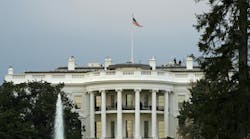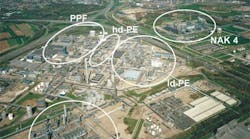Patrick CrowThe Federal Trade Commission's approval of the British Petroleum Co. plc and Amoco Corp. combination will likely make it tougher for Exxon Corp. and Mobil Corp. to merge.
Washington, D.C.
[email protected]
BP's and Amoco's operations fit quite well together with relatively little overlap. FTC had been expected to approve their union by early December, requiring only the sale of some terminals.
But the Exxon-Mobil announcement Dec. 1 changed things.
FTC reconsidered the BP-Amoco merger for nearly a month: it knew that the U.S. gasoline market now would be losing not one, but two major players.
So it raised the ante for BP Amoco. Although it required the sale of only 134 gasoline stations and nine terminals, it insisted BP Amoco allow more than 1,600 independently owned gasoline stations to switch suppliers and give those dealers financial incentives to switch to brands that had less than 20% of the market (see story, p. 30).
FTC said its requirement satisified its concerns that the combined company would have the effect of reducing wholesale gasoline competition in 30 markets.
FTC's view
If the Exxon-Mobil deal impeded BP Amoco's plans, the favor is likely to be reciprocated.FTC Chairman Robert Pitofsky has said that, in the aftermath of the BP-Amoco merger, FTC will be more concerned with subsequent oil industry mergers.
He noted, "There is a significant trend toward concentration in the petroleum industry.
"Megamergers in all industries warrant close antitrust review. The commission will continue to examine each transaction on its own special facts to determine whether the overall effect is likely to lessen competition and injure consumers."
Pitofsky was careful not to prejudge the Exxon-Mobil merger, but he said the BP-Amoco deal clearly has changed the composition of competition in the oil market.
He told the Washington Post, "It is certainly fair to say that, if the merger trend continues in the oil industry, we would take that consolidation into account each time we review a deal."
What's ahead
The FTC chairman noted that each merger is different, and so the divestitures the commission required for the BP-Amoco merger should not be regarded as any kind of a pattern for an Exxon-Mobil union.Pitofsky noted that BP's and Amoco's operations "rarely overlap in a way that threatens competition."
Exxon-Mobil would be different. Both companies have refineries, terminals, and pipelines along the Gulf Coast that supply much of the gasoline for the northeastern U.S. market, where, together, they would have a high concentration of service stations.
On a broader scale, Exxon-Mobil would have 22% of the U.S. gasoline market, compared with 16% for BP-Amoco.
Observers expect FTC consideration of the Exxon-Mobil deal, announced Dec. 1, to take markedly longer than the 5 months for BP Amoco.
There's little doubt that an Exxon-Mobil merger can be fashioned to meet FTC's objections. The real question is how far the two firms will be willing to prune their assets.
Copyright 1998 Oil & Gas Journal. All Rights Reserved.

